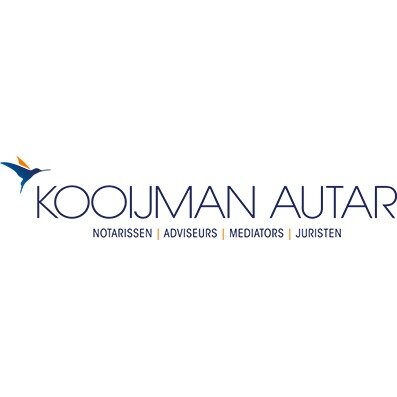Best Mining Law Lawyers in Netherlands
Share your needs with us, get contacted by law firms.
Free. Takes 2 min.
Or refine your search by selecting a city:
List of the best lawyers in Netherlands
About Mining Law in Netherlands
Mining law in the Netherlands regulates the exploration and extraction of minerals, including hydrocarbons like oil and natural gas, from the soil and subsoil within Dutch territory. The cornerstone of mining regulation is the Mining Act (Mijnbouwwet), which establishes the legal framework for granting exploration and production licenses, environmental protection, safety standards, and land use issues associated with mining activities. Mining law aims to balance resource extraction with public interest, environmental protection, and the rights of landowners and other stakeholders.
Why You May Need a Lawyer
Engaging a lawyer with expertise in Dutch mining law can be essential for several reasons. Individuals or businesses seeking to explore or extract minerals need to navigate complex licensing requirements and compliance obligations. Legal advice is often required to resolve disputes over land access, negotiate compensation arrangements, or understand environmental liability. Additionally, those affected by mining activity-such as landowners or local communities-may need representation to assert their rights, challenge projects, or secure adequate compensation. Regulatory compliance, contract negotiation, and cross-border mining operations also frequently demand specialized legal support.
Local Laws Overview
The key legal instrument governing mining in the Netherlands is the Mining Act, along with its associated regulations. Key aspects include:
- Licensing System: Exploration and production of minerals and hydrocarbons require a government-granted concession. The licensing process assesses environmental and societal impacts.
- Environmental Protection: Mining operations are subject to strict environmental standards under both the Mining Act and environmental legislation, such as the Environmental Management Act (Wet milieubeheer). Impact assessments and mitigation measures are often mandatory.
- Land Use and Access: Mining companies may require rights of access to private land. Compensation for landowners and agreements regarding surface use are often regulated by law.
- Health and Safety: Stringent safety requirements ensure the protection of workers, with obligations for risk assessment and management in mining operations.
- Public Consultation: Major mining projects may require public consultation and the opportunity for interested parties to comment or object.
- Decommissioning and Restoration: At the end of a mining operation, companies are required to restore sites and address any environmental impacts, under government supervision.
Frequently Asked Questions
What minerals are covered under Dutch mining law?
The Dutch Mining Act covers the extraction of hydrocarbons (oil and gas) as well as certain solid minerals, including rock salt and minerals found at depth. Different regulations may apply depending on the resource.
Do I need a permit to explore for minerals?
Yes, you need a government-issued exploration license to search for minerals, and a separate production license to extract them. These permits involve strict criteria and assessment procedures.
What is the process for obtaining a mining concession?
You must submit a detailed application to the Ministry of Economic Affairs and Climate Policy, including technical, financial, and environmental information. The application is assessed for alignment with national interests, safety, and sustainability.
How are environmental impacts assessed?
Projects with potential significant impacts require an Environmental Impact Assessment (EIA). This evaluates environmental consequences and proposes mitigation measures before approval can be granted.
Can mining operations occur on private land?
Yes, but mining companies must negotiate land access and compensation with owners. If agreement is not reached, the state may intervene through expropriation procedures, though this is rare and subject to strict legal safeguards.
Are there protections for local communities?
Yes, public consultation is required for significant projects. Compensation and measures to mitigate negative impacts are available to affected communities and landowners.
What happens if there is environmental damage from mining?
The company responsible is usually required to remediate any environmental damage. Failure to do so can result in government intervention, fines, and other legal action.
Do foreign companies face additional barriers?
Foreign companies can apply for concessions but must comply with the same requirements as Dutch companies. However, special due diligence may be applied, especially for large or sensitive projects.
How are disputes resolved in mining law?
Disputes can be resolved through negotiation, mediation, or, if necessary, litigation before Dutch courts or administrative tribunals. Arbitration is also sometimes used in contractual disputes.
What obligations exist when mining operations end?
Companies are required to decommission sites responsibly, restore land as specified in their license, and address any residual environmental or safety concerns. Financial guarantees may be required to ensure proper closure.
Additional Resources
Consider reaching out to the following organizations and governmental bodies for information or assistance:
- Ministry of Economic Affairs and Climate Policy - Responsible for licensing and oversight of mining activities.
- The Netherlands Enterprise Agency (RVO) - Provides information on permits, regulations, and support for investors in the mining sector.
- State Supervision of Mines (SodM) - Monitors safety, technical compliance, and environmental protection in mining operations.
- Netherlands Environmental Assessment Agency (PBL) - Offers expertise in environmental assessment of large projects, including mining.
- Legal Aid Council (Raad voor Rechtsbijstand) - Provides information about obtaining legal assistance in the Netherlands.
Next Steps
If you need legal assistance on matters related to mining law in the Netherlands, consider the following steps:
- Research your specific issue using trusted governmental resources to clarify your questions and gather relevant documents.
- Consult with a specialized mining law attorney who is experienced in Dutch regulatory frameworks and familiar with your type of project or situation.
- Check if you are eligible for legal aid or support, especially if you are an individual or community member affected by mining.
- Arrange an initial consultation to discuss your options, potential risks, and strategies for resolution or compliance.
- Stay informed about changes to laws and regulations that may affect your interests or activities within the Netherlands.
Navigating mining law can be complex, but professional legal guidance will help ensure your interests are effectively represented and your obligations are clearly understood.
Lawzana helps you find the best lawyers and law firms in Netherlands through a curated and pre-screened list of qualified legal professionals. Our platform offers rankings and detailed profiles of attorneys and law firms, allowing you to compare based on practice areas, including Mining Law, experience, and client feedback.
Each profile includes a description of the firm's areas of practice, client reviews, team members and partners, year of establishment, spoken languages, office locations, contact information, social media presence, and any published articles or resources. Most firms on our platform speak English and are experienced in both local and international legal matters.
Get a quote from top-rated law firms in Netherlands — quickly, securely, and without unnecessary hassle.
Disclaimer:
The information provided on this page is for general informational purposes only and does not constitute legal advice. While we strive to ensure the accuracy and relevance of the content, legal information may change over time, and interpretations of the law can vary. You should always consult with a qualified legal professional for advice specific to your situation.
We disclaim all liability for actions taken or not taken based on the content of this page. If you believe any information is incorrect or outdated, please contact us, and we will review and update it where appropriate.
Browse mining law law firms by city in Netherlands
Refine your search by selecting a city.
















